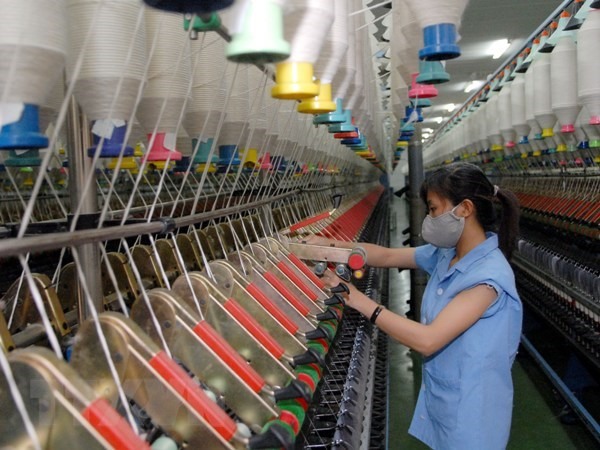Macroeconomic stability and economic growth drive each other, as the former helps boost investment and consumption while the latter creates foundation for achieving the former, Prime Minister Nguyen Xuan Phuc wrote in a recent article.

Macro-economic stability and economic growth drive each other, as the former helps boost investment and consumption while the latter creates foundation for achieving the former, Prime Minister Nguyen Xuan Phuc wrote in a recent article.
Since Viet Nam launched the reform process more than three decades ago, macro-economic stabilisation has always been the fundamental principle. Despite the ups and downs of the economy as it progressed from a low starting point, the country has spared no effort to maintain macro-economic stability.
In 2017, the country witnessed a positive socio-economic situation across fields, most noticeably macro-economic stability. Exports soared, contributing to the yearly trade surplus of US$2.8 billion, and foreign reserves rose to nearly $60 billion.
The exchange rate became stable and interest rates tended to fall, facilitating business activities. Total budget revenues exceeded the goal by 5.9 per cent meanwhile overspending rate reduced to 3.48 per cent of the GDP and the public debt ratio decreased to 61.2 per cent of the GDP.
More importantly, growth was no longer heavily dependent on short-term stimulus measures and mineral exploitation.
Apart from the stable macro-economy, the country’s business environment also made improvements as the index jumped by 14 places from 82nd to 68th out of 190 economies while national competitiveness climbed up five places to 55th out of 137 countries and territories. The banking system was rated “positive” from “stable”.
Lessons learnt
According to PM Phuc, these achievements came as result of the outstanding efforts of the whole political system, levels, sectors and business community.
He pointed out lessons learnt, including smooth, effective and flexible coordination of policy tools in terms of degree and time for implementation and closely monitoring the international and domestic situations so that appropriate and prompt interventions could be taken in combination with ceaseless innovations.
He also noted the maintenance of stable and effective micro foundations and proper policies to strengthen the resilience of the economy amid the fast-changing world.
A transparent information system and enhanced analysis and forecast capacity in order to support good policy-making processes is another essential factor, while human resources are the decisive factor in both policy-making and implementation processes.
Future directions
PM Phuc stressed that the Government will continue firmly ensuring macro-economic stability in a drastic, proactive and flexible manner in order to achieve higher growth this year and lay a firm foundation for faster and more sustainable growth in the years ahead.
The Government chief laid out several tactics.
First, the Government will continue pursuing cautious monetary policy in order to avoid causing pressure on inflation while accelerating the restructuring of credit institutions and the settlement of non-performing loans in association with guaranteeing credit quality.
Secondly, the fiscal policy will be strictly implemented to ensure financial discipline while drastic measures are needed to counter budget revenue losses, price transferring, tax fraud and tax base erosion.
Thirdly, properly allocation of resources at national, sectoral, regional and local levels while beefing up disbursement and allocation of public investment capital in order to stimulate private investment will be conducted.
Fourthly, the Government will continue implementing the roadmap to soon abolish price subsidies for electricity, education and healthcare services in association with renewing support and assistance for policy beneficiaries and poor people.
Apart from the directions above, he also emphasised the need to focus on improving labour productivity, competitiveness and the resilience of the economy; improving the business environment; mobilising and utilising technical assistance from foreign countries; and learning from international experiences. — VNS





